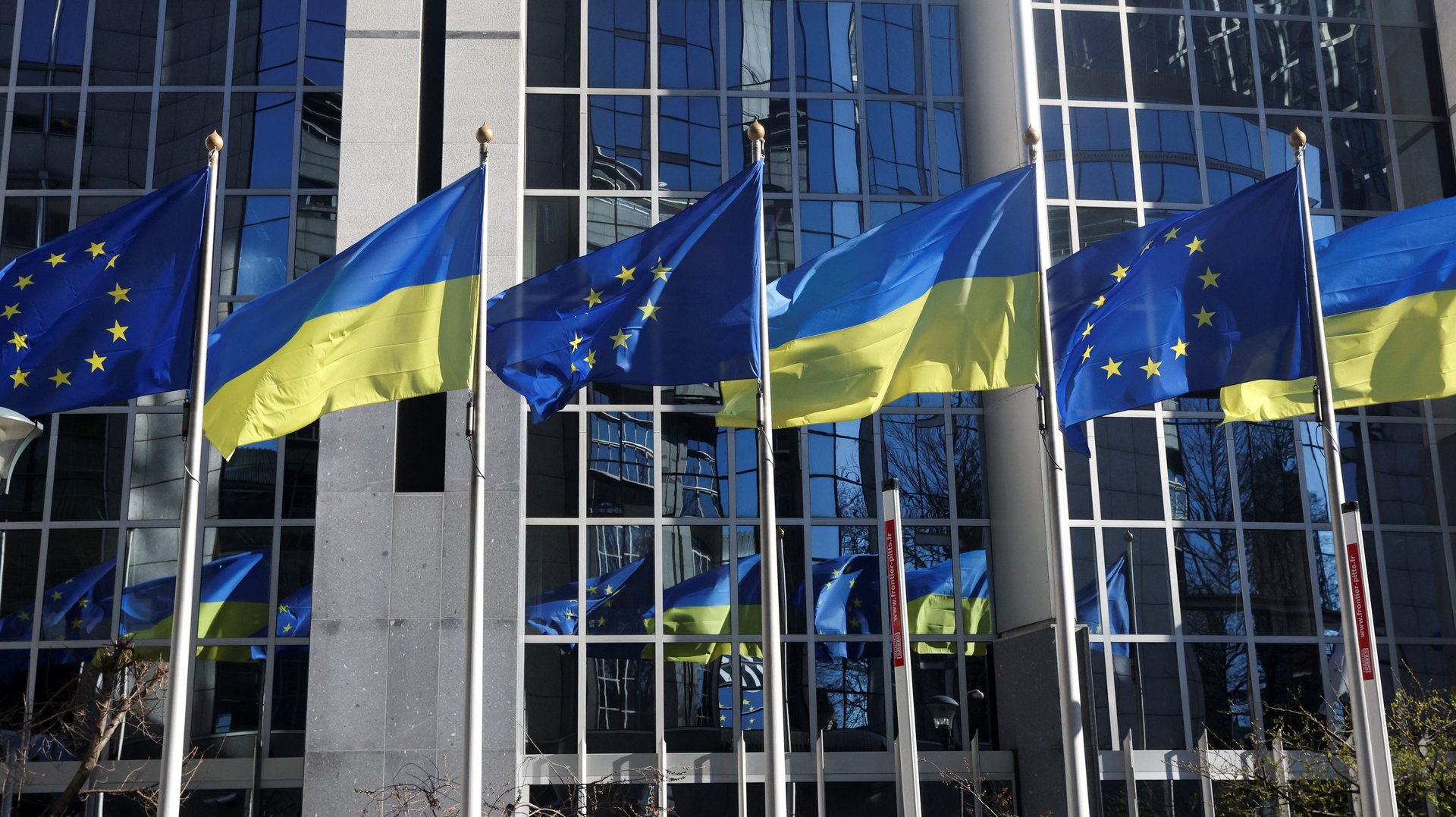Putin is giving the EU an opportunity to live up to its mission
It took Vladimir Putin less than a week to do what the European Union couldn’t do by itself in three decades: Get the union to come together as a political entity unafraid to take an active role in international conflict.


It took Vladimir Putin less than a week to do what the European Union couldn’t do by itself in three decades: Get the union to come together as a political entity unafraid to take an active role in international conflict.
After a nonstop 50-hour meeting, the European Union decided today that it will send $450 million in military aid to Ukraine to support the country’s resistance to Russia’s invasion.
“This is a watershed moment,” said European Commission President Ursula von der Leyen announcing the decision.
Until now, the EU—which doesn’t have its own army—had operated under an unwritten rule to stay clear of direct military involvement in conflict, including in former Yugoslavia during the 1990s. Yet Russia’s invasion pushed the EU to move past its historic reluctance, and send military support while allowing member countries who don’t want their donations to go toward weapons to contribute to a separate $50 million fund for other supplies, such as fuel.
The EU’s political mission
Although the overwhelming majority of its actions since its founding in 1993 have been economic, the EU was created with a political mission. Its primary aims are “promote peace, its values and the well-being of its citizens; offer freedom, security and justice without internal borders, while also taking appropriate measures at its external borders to regulate asylum and immigration and prevent and combat crime.” Supporting economic growth appears later in the list of its stated priorities.
Yet the EU hasn’t often acted as a united political force, which has often been an obstacle to its ability to deal with internal crises. Deciding to provide military aid to Ukraine doesn’t equal creating a political union, and it does not create a European army. But it is a historical step in the direction of a politically engaged union.
The money earmarked for military aid to Ukraine is about 10% of the $5 billion allocated to the European Peace Facility, the EU body with the responsibility for undertaking actions with military and defense outcomes. Never before had this fund been used to directly aid a country’s army.
Not what Putin wanted
Beyond the practical importance of providing aid, the decision sends Putin the clear message that the EU is ready to come together politically to oppose his invasion of Ukraine. Meanwhile, Ukraine has asked to join the EU.
On top of the EU’s financial pledge, Russia’s actions have also elicited a significant increase in defense spending by Germany, which is going to invest more than 2% of its budget into the military to prepare for a more belligerent Russia. The US had long been pushing its ally to increase military spending, but it took Putin to finally make it happen. Other European countries, such as Sweden, are sending military aid independently of the EU, as well.
The front against the invasion of Ukraine is perhaps stronger than Putin might have expected. Even Switzerland, a notoriously neutral nation, abandoned its impartial stand to join the EU sanctions against Russia.